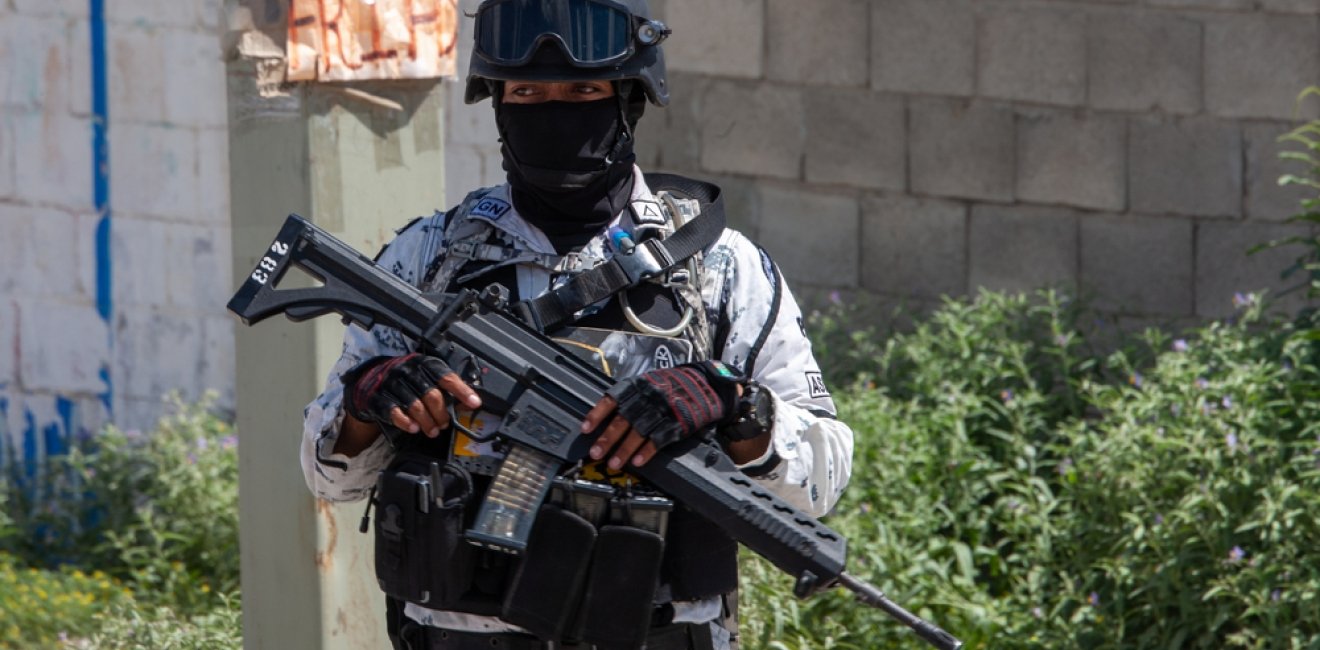With Claudia Sheinbaum and Xóchitl Gálvez due to contest Mexico’s 2024 presidential election, the nation looks set to elect its first ever female president. Whichever candidate wins, they will inherit significant challenges that require urgent action and a genuine commitment to human rights.
Security remains one of the most pressing issues. Although violence was already on the rise when he took office, President Andrés Manuel López Obrador has still failed to make Mexico a safer place, with the violence associated with the “war on drugs” continuing to ravage the country. His term has already been the bloodiest in the nation’s modern history, with 156,136 murders as of May 2023.
Over 111,000 people are officially registered as missing or disappeared, while the relatives – typically women – leading the search for their loved ones are left unprotected in the face of threats, attacks and killings. The country remains rife with femicides and gender-based violence, yet the government has shown little political will to address this issue and has even slashed funding for women’s shelters.
Following his election in 2018, President López Obrador swiftly reneged on past promises to return the nation’s troops to their barracks and implement a different public security strategy. Instead, he has further militarized the country, handing the armed forces control of Mexico’s ports and airports and entrusting them with the construction of controversial megaprojects.
His administration has also placed Mexico’s new National Guard, a supposedly civilian force, under the control of the military and deployed it to stop migrants and refugees from reaching Mexico’s border with the United States. This has resulted in hundreds of complaints against the force, including allegations of torture, enforced disappearances and unlawful killings.
Instead of changing course, López Obrador has continued down the path of the previous two administrations, doubling down on a strategy that has only brought increased levels of violence, grave human rights violations and crimes under international law.
The defense of human rights in Mexico has also grown deadlier than ever. The warzone in Ukraine was the only place more lethal for journalists in 2022, while Mexico was the world’s third most dangerous country for human rights defenders and environmentalists last year.
Women who protest peacefully against gender-based violence have faced brutal repression by state security forces, including unnecessary and excessive force, arbitrary detention and even sexual violence. The authorities have also misused Mexico’s justice system to criminalize defenders of land, territory and environmental rights and deter them from exercising their right to peaceful protest. Meanwhile, the government has pressed ahead with megaprojects such as the Tren Maya, despite concerns over its environmental impact and Indigenous Peoples’ rights to free, prior and informed consent.
Impunity is another major problem that the next president will have to address. The current administration has failed to uphold the rights to truth, justice and reparations of the families of the 43 Ayotzinapa students who were forcibly disappeared almost a decade ago. The vast majority of killings of journalists and human rights defenders have also gone unpunished, along with grave human rights violations against migrants and asylum seekers, such as the fire at a shelter in Ciudad Juárez that claimed 40 lives last March.
Whoever Mexico’s next president is, they must ensure that human rights are at the center of their policies. Upon taking office, their initial priorities should include putting an end to the militarization of public security and the criminalization of peaceful protesters, taking concrete action to protect journalists and human rights defenders at risk, complying with Mexico’s international obligations to protect migrants and refugees, and delivering a firm commitment to climate justice and environmental protection.
Author


Mexico Institute
The Mexico Institute seeks to improve understanding, communication, and cooperation between Mexico and the United States by promoting original research, encouraging public discussion, and proposing policy options for enhancing the bilateral relationship. A binational Advisory Board, chaired by Luis Téllez and Earl Anthony Wayne, oversees the work of the Mexico Institute. Read more

Explore More
Browse Insights & Analysis
Greenland’s New Governing Coalition Signals Consensus

The Future of France's Far-Right Party

Ukrainian Issue in Polish Elections

